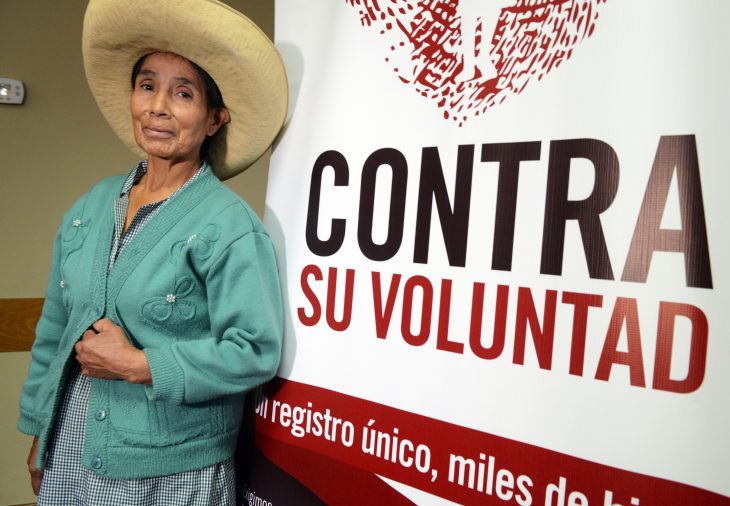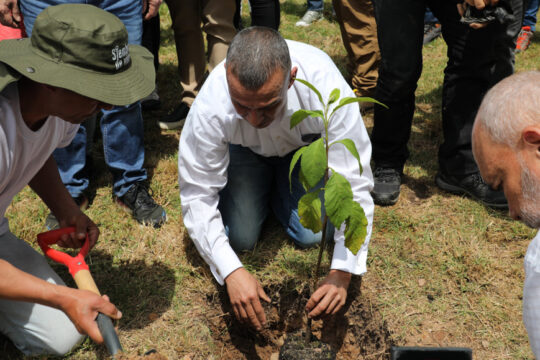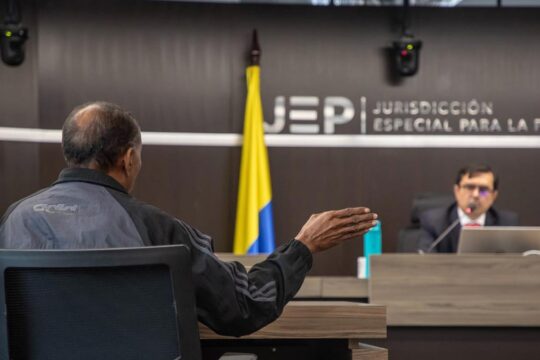Transitional justice does not always go smoothly with orderly procedures, exemplary trials and fair judgments.
This is illustrated in Colombia, where, despite an agreement in principle between FARC rebels and the government signed in September 2015 in Havana, there are still obstacles to a final accord putting an end to a conflict that has left more than 300,000 people dead. The negotiations are still up against three difficult points: disarmament of the FARC, security in rural areas and a proposed referendum in which Colombians would approve (or not) the peace deal. “What the FARC rebels are negotiating is essentially their return to politics, and they should have their place,” says political scientist Ariel Avila in an interview with JusticeInfo’s Bogota correspondent Christine Renaudat. “As I said recently in an editorial, it’s unrealistic to think the guerrilla commanders waged war for 50 years to become municipal councillors in a village. They must be allowed to enter Parliament and become presidential candidates. That’s the aim of these negotiations: to replace arms with ideas.”
Another Latin American country highlighted by JusticeInfo this week is Peru, which is trying to deliver justice to indigenous women who were forcibly sterilized between 1995 and 2000. As writer and academic Juan Pablo Pérez-León Acevedo of Oxford Transitional Justice Research (OTJR), a JusticeInfo partner, explains “an important challenge is the laborious task of reaching out to the total universe of victims – potentially around 300,000 persons – in a timely fashion. This is particularly difficult as most victims belong to rural and indigenous communities, and are also categorized as vulnerable and dispossessed groups.” But Peru seems determined to implement this work of justice, remembrance and reparation, which are the very foundations of transitional justice.
In Burundi, on the other hand, abuses are continuing and a Tutsi general was assassinated on Monday, April 25, just hours before the Prosecutor of the International Criminal Court (ICC) announced she was opening a preliminary examination into the increasingly worrying situation in the country. The government is manipulating transitional justice processes, in particular the Truth and Reconciliation Commission. In an interview with JusticeInfo, former Burundian president and Senator for life Sylvestre Ntibantunganya says the current political and security situation is “not conducive to the Commission’s work”. Ntibantunganya, who survived the October 1993 coup that killed Burundi’s first democratically elected president Melchior Ndadaye, also says it is “shocking that some victims of the dark years in our country’s history are now trying to use their suffering of the past to justify crimes they are committing today.”
To be noted also is an ICRC conference in Geneva on international humanitarian law, which is under more pressure than ever from non-State actors and also States themselves, who respect the Geneva Conventions less and less.
Finally, an award-winning documentary film (“Le siège”) looks back at the siege of Sarajevo. “More than 20 years after the siege and the Bosnian war, this documentary takes us back to the Balkans,” writes JusticeInfo Editorial Advisor Pierre Hazan, “but also reminds us of Syria today. A documentary will no doubt show us one day how men, women and children in that country have for years been resisting the dehumanization processes inflicted on them, as the world has become used to their suffering.






